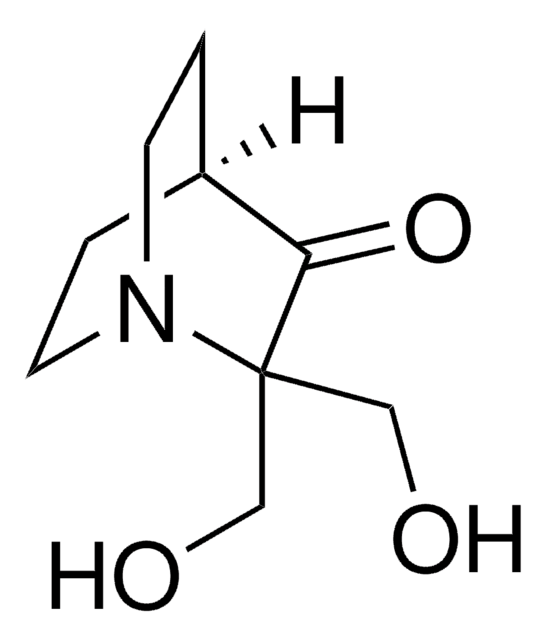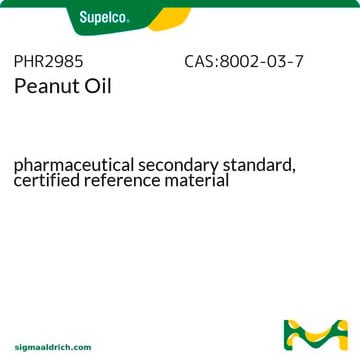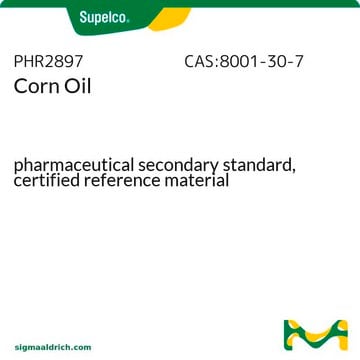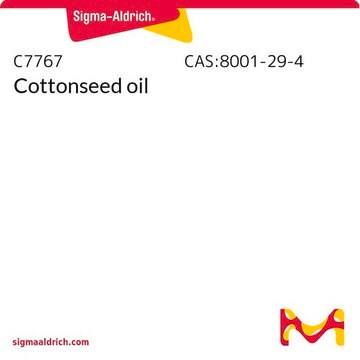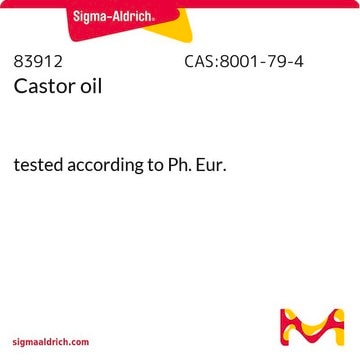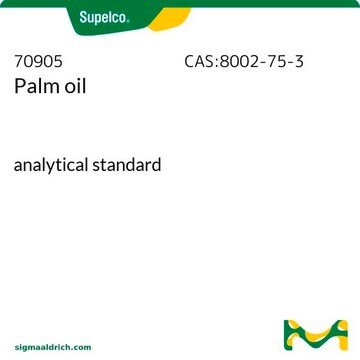P2144
Peanut oil
delivery vehicle for lipophilic compounds
Synonym(s):
Arachis Oil
Sign Into View Organizational & Contract Pricing
All Photos(1)
About This Item
Recommended Products
biological source
peanut oil
form
liquid
composition
Unsaturated fatty acids, ~80%
density
0.91 g/mL at 25 °C (lit.)
functional group
oleic acid
lipid type
oils
shipped in
ambient
storage temp.
room temp
Looking for similar products? Visit Product Comparison Guide
General description
Peanut oil is extracted from Arachis hypogaea L, is a source of edible oil in the tropical region. Peanut oil has high concentration of oleic and linoleic acid. It has many industrial applications like soap, cosmetics etc.
Application
Non-polar solvent, largely consisiting of long-chain glycerides of fatty acids, used for the delivery of lipophilic compounds.
Peanut oil has been used in the preparation of tamoxifen stock solution. It has also been used for dissolving the pesticide and fungicide compounds for in vivo study.
Storage Class Code
10 - Combustible liquids
WGK
awg
Flash Point(F)
228.2 °F - closed cup
Flash Point(C)
109 °C - closed cup
Personal Protective Equipment
dust mask type N95 (US), Eyeshields, Gloves
Certificates of Analysis (COA)
Search for Certificates of Analysis (COA) by entering the products Lot/Batch Number. Lot and Batch Numbers can be found on a product’s label following the words ‘Lot’ or ‘Batch’.
Already Own This Product?
Find documentation for the products that you have recently purchased in the Document Library.
Customers Also Viewed
Sergio Parra et al.
BMC pharmacology & toxicology, 15, 29-29 (2014-06-06)
Regulator of G protein signaling (RGS) proteins suppress G protein coupled receptor signaling by catalyzing the hydrolysis of Gα-bound guanine nucleotide triphosphate. Transgenic mice in which RGS-mediated regulation of Gαi2 is lost (RGS insensitive Gαi2G184S) exhibit beneficial (protection against ischemic
Inducible gene targeting in the neonatal vasculature and analysis of retinal angiogenesis in mice
Pitulescu ME, et al.
Nature Protocols, 5(9), 1518-1518 (2010)
The combined antiandrogenic effects of five commonly used pesticides
Birkhoj M, et al.
Toxicology and Applied Pharmacology, 201(1), 10-20 (2004)
Mechanisms of action underlying the antiandrogenic effects of the fungicide prochloraz
Laier P, et al.
Toxicology and Applied Pharmacology, 213(2), 160-171 (2006)
Chemical analyses of groundnut (Arachis hypogaea) oil
Anyasor GN, et al.
Pakistan journal of nutrition, 8(3), 269-272 (2009)
Our team of scientists has experience in all areas of research including Life Science, Material Science, Chemical Synthesis, Chromatography, Analytical and many others.
Contact Technical Service

